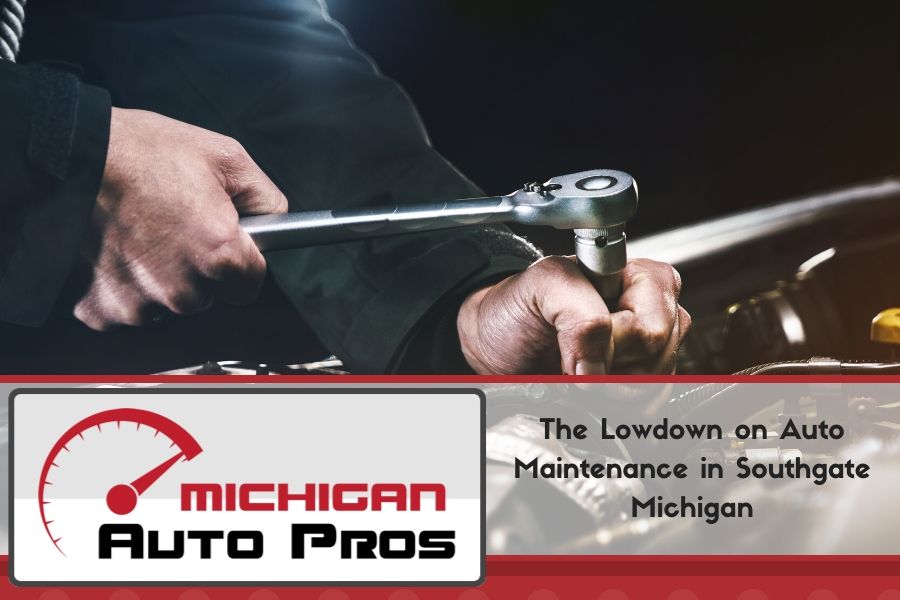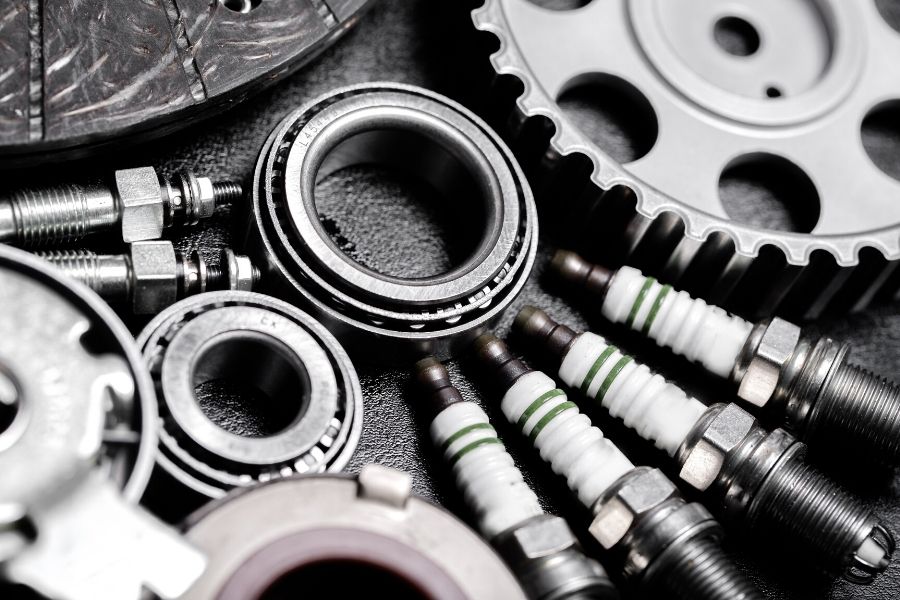Auto maintenance in Southgate Michigan – a necessary burden that accompanies car ownership no matter the make and model – need not be something you put off out of fear of a high bill or lengthy time without your car. In fact, most auto maintenance in Southgate Michigan is routine; jobs that form the foundation of auto repair shops the world over. While some tasks are certainly more complicated than others, typical auto maintenance is generally a piece of cake. Read on to better understand the basics of automotive maintenance.
The Oil Change
Everybody’s heard of this one. The oil change is one of the most fundamental jobs in the world of auto maintenance. Oil is the lifeblood of your car. It keeps delicate (and often expensive) components cool and allows them to glide seamlessly within their tolerances. Due to intense heat, and impurities introduced by the engine, oil eventually begins to break down.
As oil deteriorates, it loses its viscosity – essentially the oil’s thickness, and as it degrades the oil becomes less capable of doing its job. If left neglected, oil will slowly turn into sludge at the cost of significant damage to your engine.
Look on the shelf of any auto parts supplier and you’ll be met with a dizzying array of types. If ever in doubt, consult your vehicle’s manual, or ask the dealer or service station where you plan to bring your car. Generally speaking, oil should be changed every 3000-5000 miles. This is largely dependent on quality, with high-end (and high cost) synthetics typically enjoying longer intervals between changes.

The Brake Job
The ‘ol brake job is another cornerstone of car maintenance. The term brakes collectively means your car’s entire braking system, although in the case of the brake job, it usually means servicing the pads and rotors.
These items are consumable and will need to be replaced periodically. When you step on the brake pedal, the brake caliper squeezes a disk that’s affixed to each wheel. The pads serve as the point of contact between the caliper and the disc and are subject to extreme heat. Every time you brake, a small percentage of the pad is burned off. Overtime, discs will become worn as well.
By design, pads and rotors will start making a squeaking or squealing sound as they reach their limit, indicating that it’s time to bring your car in for service. Fortunately, brake jobs aren’t terribly expensive, and can be performed at most any service center.
The Filters
The primary filters in your car include air, cabin, and oil. The latter is almost always changed during an oil change, and the cost of the service will reflect it.
The engine air filter is a critical part should you hope to enjoy even reasonable longevity. A clean air filter keeps dirt and other road sediment from entering your engine and slowly eating away and the precise internals. While a few specks of dirt might not seem like much, over time they can create surface irregularities inside your engine, which translates to a whole slew of expensive repairs down the road.
While it isn’t essential to the car’s function, your vehicle’s cabin air filter ensures you’re breathing clean air that hasn’t been tainted by the impurities of the road. Both the cabin filter and the engine air filter will experience reduced lifespan if you tend to drive on dirt roads or other areas heavy with dust and dirt – a fact that should be kept in mind when planning your auto maintenance schedule.
The Tires
Your tires have a critical role in both handling and braking and ensuring they’re in top shape should be on every motorist’s mind. One easy way to guarantee top performance is to make sure tire pressure is up to spec. Specific tire pressure is generally listed on the driver side inner door well. Checking pressure and topping it off costs next to nothing and will preserve the life of your tires. You’ll also enjoy better handling, and increased gas mileage.
While you’re down there, it never hurts to take a peek at your tire’s tread. Over time, the tread will wear and as it does, the tire will lose its ability to properly grip the pavement and expel water in wet or rainy conditions. Minimum tread depth for many tires is approximately 3/32”.
But if you don’t have a tread depth gauge, you can always just use a penny. Insert the penny into the tread groove, ensuring Lincoln’s head is upside down and facing you. If you can see all his head, there’s a good chance your tread is beyond the service limit and the tire needs to be replaced. This is hardly an exact science, of course, and if in doubt it’s best to consult with a service center.
The Emergency Kit
The safety conscious driver is always prepared in the event of an accident or breakdown. This can be a simple collection of only staples like a flashlight and spare tire, to more elaborate setups that include battery-powered cell phone chargers, flares, and heat blankets.
Today’s cars are safer than ever, but the bottom line is the road is a risky place. Asses your destination, and any obstacles the journey may present, and tailor your kit accordingly.
Here at Good Care Auto, auto maintenance is our specialty. We employ a team of ASE-certified technicians, armed with the latest cutting-edge tools and diagnostic equipment, which means fast turnaround and affordable, professional service. Unsure what kind of oil you need? Just ask! We stock most offerings from nearly all leading brands, as well as a vast selection of tire types and sizes. No job is too small. Call Good Care Auto today at (734) 285-1188!
